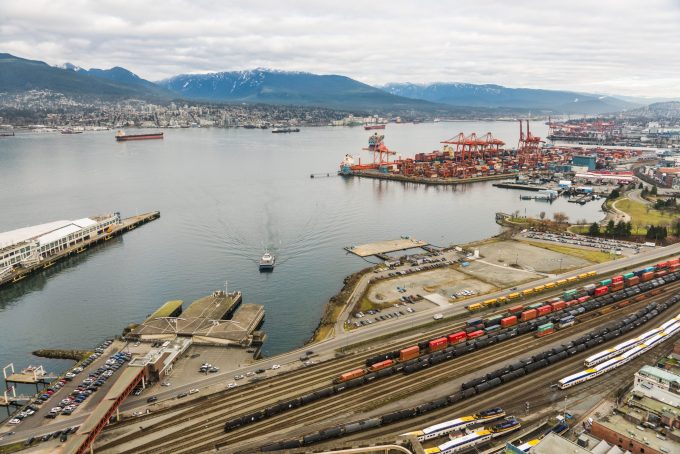Back to work order sees Canadian ports reopen to a battle against backlogs
Operations have resumed at strike-hit ports across Canada, but the work stoppage has resulted in ...
BA: WIND OF CHANGEMAERSK: BULLISH CALLXPO: HEDGE FUNDS ENGINEF: CHOPPING BOARDWTC: NEW RECORDZIM: BALANCE SHEET IN CHECKZIM: SURGING TGT: INVENTORY WATCHTGT: BIG EARNINGS MISSWMT: GENERAL MERCHANDISEWMT: AUTOMATIONWMT: MARGINS AND INVENTORYWMT: ECOMM LOSSESWMT: ECOMM BOOMWMT: RESILIENCEWMT: INVENTORY WATCH
BA: WIND OF CHANGEMAERSK: BULLISH CALLXPO: HEDGE FUNDS ENGINEF: CHOPPING BOARDWTC: NEW RECORDZIM: BALANCE SHEET IN CHECKZIM: SURGING TGT: INVENTORY WATCHTGT: BIG EARNINGS MISSWMT: GENERAL MERCHANDISEWMT: AUTOMATIONWMT: MARGINS AND INVENTORYWMT: ECOMM LOSSESWMT: ECOMM BOOMWMT: RESILIENCEWMT: INVENTORY WATCH

With a 22 May deadline for Canada’s rail strike looming, Maersk has drawn up its contingency plan for North America west coast port calls, but warned of an extended recovery period, significant backlogs and knock-on effects.
Canadian rail workers union the Teamsters Canada Rail Conference (TCRC) called for industrial action following five months of unsuccessful discussions with employers Canadian National Railway (CN) and Canadian Pacific Kansas City (CPKC).
If a deal cannot be reached between them by 22 May, rail operators and dispatchers across Canada will walk off the job.
CN said it “maintains a cautious outlook” and CPKC president and CEO Keith Creel said he was a “realist” about the situation – both operators acknowledging that a deal might not be reached in time.
Listen to this clip from the latest episode of The Loadstar Podcast to hear advice on how to manage container supply chains in a time of multiple risks:
Maersk said today it had been “working closely” with CN, CPKC and terminal operator DP World to minimise congestion on the Canadian west coast ports in the event of a strike.
It will offer inducement calls to the Seattle-Tacoma Northwest Seaport Alliance on four upcoming sailings of its TP1 service to manage US import and export rail cargo, rather than having it dispatched in Vancouver and transported cross-border to the US.
The TP1 is a 2M alliance service, and calls at ports in China, South Korea, Japan and Canada.
Calls at Tacoma will begin with the Maria Y, due to arrive at Prince Rupert on 30 May, and Vancouver on 3 June, and continue with weekly calls for the next month.
Maersk said it was still reviewing “feasible rail routings and transit times” to US destinations via Tacoma.
But this has led to concern that cargo diverted to Tacoma will cause significant bottlenecks across US rail networks already struggling with their own staffing and congestion issues.
And Mr Creel warned that volume influx would be exacerbated if the strike is prolonged.
“It will occur when we have a harvest coming in, when demands for our services… have never been greater; that is the absolute worst time for it to occur,” he said.
And Maersk warned: “In the event of a work stoppage, customers can anticipate significant backlogs, with knock-on effects and an extended recovery period should the disruption last for more than a few days.”
As a further mitigation tactic, the Danish carrier said it would divert cargo from Centerm in Vancouver to the port of Prince Rupert, however given the latter’s reliance on rail for hinterland transport, it was unclear how this might help alleviate a backlog, other than acting as a storage facility
Maersk is also “reviewing limited truck options for intra-Canada transport”.
CN announced yesterday it had reached a tentative agreement with its first- and last-mile trucking subsidiary, CNTL. The four-year agreement covers some 750 owner-operators under contract with CNTL in Canada until 31 December 2027.
Comment on this article